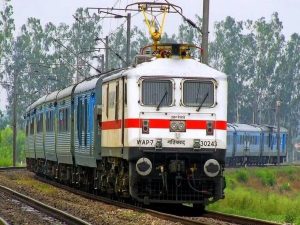
2S Second Sitting Ticket Cancellation and Waiting List: A Comprehensive Guide
Overview of Indian Railways: Importance and structure.
Focus on the 2S Class: Description of the 2S (Second Sitting) class, typically unreserved seating but can be reserved, especially in express trains. Suitable for shorter journeys and budget-conscious travelers.
Ticket Booking and Categories: Overview of confirmed, RAC (Reservation Against Cancellation), and waiting list (WL) tickets.
- Understanding the Second Sitting (2S) Class
What is the 2S Class?: Characteristics of Second Sitting class, seating arrangements, affordability.
Types of 2S Tickets: Unreserved and reserved seats.
Typical Usage: Commonly used for short-distance journeys and for travelers prioritizing affordability over luxury.
- Waiting List (WL) Ticket System
Definition of Waiting List Tickets: Explanation of the waiting list status and what it signifies for a traveler.
Quota and Waiting List Numbers: How waiting lists are organized based on quotas and routes.
Confirmation Process for Waiting List Tickets: How waiting list tickets progress towards RAC or confirmation based on cancellations and availability.
- Ticket Cancellation Policy for 2S Waiting List Tickets
Cancellation Policy Overview: General policy for cancellation across different classes and the importance of knowing the refund rules.
Specific Rules for 2S Class: How the cancellation process is simplified or adjusted for the 2S class.
Why Cancellation Policies Matter for Waiting List Passengers: Financial implications, common misunderstandings, and the importance of timely cancellations.
- Detailed Breakdown of Cancellation Charges for Waiting List Tickets in 2S
Charges if the Ticket Remains on the Waiting List: How charges differ if the ticket status does not reach RAC or confirmed.
Cancellation Window and Charges:
If canceled within 24 hours of the scheduled departure.
If canceled more than 24 hours before departure.
Automatic Refunds: Conditions under which Indian Railways automatically refunds for unconfirmed tickets without passenger intervention.
IRCTC Rules for E-tickets: Specific cancellation policies and charges for tickets booked via IRCTC versus at counters.
- Charges and Refunds for RAC and Confirmed 2S Tickets
Charges for RAC and Confirmed Tickets: How charges differ when a ticket reaches RAC or confirmed status.
Refund Timeline and Process: Expected time for refunds and modes through which passengers receive funds back.
Key Differences Between RAC/Confirmed and WL Cancellation Charges: Comparison table to provide clarity.
- How to Check Waiting List Status and Predict Confirmation
Tools and Platforms to Track Ticket Status: Apps and websites like IRCTC, NTES, and others.
Factors Affecting Confirmation: Quota preferences, seat availability, and high-demand routes.
Tips for Optimizing the Chances of Confirmation: Booking strategies, selecting less busy trains, and adjusting journey dates.
- Common Scenarios and Examples for Better Understanding
Illustrative Scenarios: Sample cases showing cancellation charges based on status changes, time of cancellation, and class.
Example 1: Passenger with a waiting list ticket cancels 24 hours before departure.
Example 2: A passenger with an RAC ticket cancels a few hours before the train’s departure.
Example 3: An e-ticket automatically canceled due to unconfirmed WL status.
- Tips for Handling Cancellations and Avoiding Charges
When to Book and Cancel for Best Refunds: Strategic booking and cancellation tips.
Benefits of Booking Earlier and Choosing Off-Peak Routes: Ways to increase the likelihood of a confirmed ticket.
Understanding Full Refund Clauses: Circumstances under which full refunds are granted, such as train cancellations or delayed departures beyond three hours.
Summary of Key Points: Recap of the cancellation charges for 2S waiting list tickets, important rules, and how to manage bookings.
Final Tips for Passengers: Suggestions to maximize travel experience while minimizing unnecessary expenses.
Future Changes and Improvements: Brief mention of any potential updates or changes in cancellation policy based on IRCTC or Indian Railways announcements.
Would you like this article fully written out, or would you prefer specific sections expanded upon in detail?

Leave a Reply